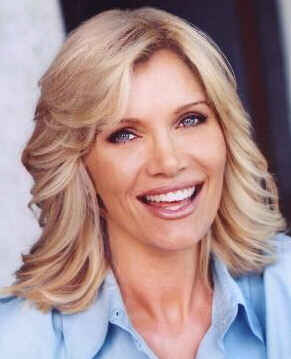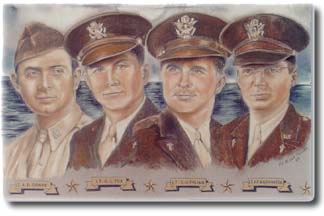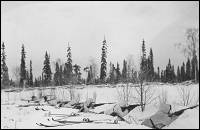Births
which occurred on a February 03:
1984
First human conceived by embryo transplant, born in Long Beach
CA
^
1958 Le Bénélux est créé
^top^
C'est
une mini-Europe avant l’Europe. Bénélux, appellation formée par les
premières lettres du nom de chacun des États: Belgique, Nederland
(pour Pays-Bas) et Luxembourg, est une entente régionale entre ces
3 états, constituée en 1958 par un traité dont l'objectif était d'organiser
l'union économique progressive des trois États. Dirigé par un Conseil
de ministres, assisté d'un conseil économique et social, le Bénélux
s'insère dans l'ensemble plus large de la création de l'Union économique
européenne. On peut même dire qu’elle en est la première manifestation
concrète. L’origine du Bénélux remonte déjà avant la guerre 40-45.
Des contacts concrets avaient déjà eu lieu à plusieurs reprises. Mais
c’est en 43, alors que les 3 pays sont encore sous la botte nazie
que leurs responsables réfugiés à Londres, signent des accords monétaires
et douaniers. Au lendemain de la guerre, les nouveaux gouvernements
confirment formellement ces accords (en 1948) Ce qui permet le développement
des échanges commerciaux tant à l’intérieur qu’à l’extérieur de l’espace
commun, un accroissement de la production et du niveau de vie et enfin
un rapprochement du taux des salaires. Ce sous-ensemble européen comprend
un marché de près de 26 millions d’utilisateurs. Et l’Union Européenne
Economique respecte encore aujourd’hui les accords entre ces 3 partenaires.
Le Conseil des 3 ministres, le Conseil de justice, le Conseil arbitral
siègent à Bruxelles. |
^
1953 The Silent World by Cousteau
is published ^top^
French oceanographer Jacques-Yves Cousteau,
52, publishes his most famous and lasting work, The Silent World.
Born in Saint-André-de-Cubzac, France, in 1910, Cousteau was trained
at the Brest Naval School. While serving in the French navy, he began
his underwater explorations, filming shipwrecks and the underwater
world of the Mediterranean Sea through a glass bowl. At the time,
the only available system for underwater breathing involved a diver
being tethered to the surface, and Cousteau sought to develop a self-contained
device. In 1943, with the aid of engineer Émile Gagnan, he designed
the Aqua-Lung, the world's first self-contained underwater breathing
apparatus (scuba). With the Aqua-Lung, the largely unexplored world
lying beneath the ocean surface was open to Cousteau as never before.
He developed underwater cameras and photography and was employed by
the French navy to explore navy shipwrecks. In his free time, he explored
ancient wrecks and studied underwater sea life. In 1948, he published
his first work, Through 18 Meters of Water, and in 1950 Lord Guinness,
a British patron, bought him an old British minesweeper to use for
his explorations. Cousteau converted the ship into an oceanographic
vessel and christened it the Calypso.
In 1953, he published The Silent World, written with Frédéric
Dumas, and began work on a film version of the book with film director
Louis Malle. Three years later, The Silent World, the movie,
was released to world acclaim. The film, which revealed to the public
the hidden universe of tropical fish, whales, and walruses, won Best
Documentary at the Academy Awards and the Palme d'Or at the Cannes
Film Festival.
With the success
of the film, Cousteau retired from the navy to devote himself to oceanography.
He welcomed geologists, archaeologists, zoologists, environmentalists,
and other scientists aboard the Calypso and led numerous excursions
to the world's great bodies of water, from the Red Sea to the Amazon
River. He headed the Conshelf Saturation Dive Program, in which men
lived and worked for extended time periods at considerable depths
along the continental shelves. His many books include The Living
Sea (1963) — Three Adventures: Galápagos, Titicaca,
The Blue Holes (1973) — Jacques Cousteau: The Ocean
World (1985). He also produced several more award-winning films
and scores of television documentaries about the ocean, making him
a household name. He saw firsthand the damage done to the marine ecosystems
by humans and was an outspoken and persuasive environmentalist. Cousteau
died in 1997. |
1951 The Rose Tattoo, Tennessee Williams play,
opens on Broadway in New York.
1920 Dr Henry Heimlich
doctor/inventor (Heimlich maneuver)
1912 Jacques Soustelle
French minister of information
1909 Simone Weil
Paris, mystic/social philosopher/Resistance fighter (WWII), younger sister
of mathematician André Weil (whom I knew at the University of Chicago,
1948-50). She died on 24 August 1943.
1907 James A Michener
New York NY, writer (Tales of the South Pacific, Centennial, Chesapeake,
Hawaii, Space, The Bridges at Toko-Ri, Journey, Hawaii, Iberia, Centennial,
Mexico) He died on 16 October 1997.
1906 Ludvig Nielsen
composer
1905 Beurling,
mathematician
1898 Urysohn,
mathematician
1894 Norman Perceval Rockwell, US
illustrator, famous for his Saturday Evening Post covers, who died
on 08 November 1978. — MORE
ON ROCKWELL AT ART “4” FEBRUARY
with an image and links to other images.
1894 Juan
Negrín, Spanish Republican prime minister during Spanish
Civil War. He died on 14 November 1956.
1893 Gaston
Julia, mathematician.
1887 Naruhiko Higashikuni,
Japanese imperial prince, prime minister who died on 20 January 1990.
^
1887 Georg Trakl.
^top^
Ce poète
autrichien est l'un des grands de la poésie du début du XXème siècle. Il
incarne le poète maudit, hanté par un amour incestueux pour sa sœur Maragarete,
drogué à l’absinthe et à l’opium, il eut une existence brève et tragique.
Envoyé sur le front russe, il tenta de mettre fin à ses jours face à l'horreur
des massacres auxquels il assista, et fut interné. Le 3 novembre, il tente
de nouveau de se suicider. Il meurt à l’hôpital de Cracovie d'une overdose.
On lui doit des pièces de théâtre, Fata Morgana et le Jour des morts,
qui furent jouées en 1906. Son inspiration poétique, sans doute influencée
au début par le symbolisme de Maeterlinck, s'en détacha rapidement pour
s'affirmer comme une écriture comparable à celle de Hölderlin et de Novalis.
Son œuvre tourmentée, ordinairement considérée comme faisant partie de la
poésie expressionniste, mais dépassant l'expressionnisme, en fait l'un des
plus grands noms de la poésie autrichienne. On l'a comparé à Rimbaud, dont
il se voyait comme l'un des héritiers. Mais il est également de la filiation
de Baudelaire et de Verlaine, celle des poètes maudits. Ses poèmes ont été
recueillis et publiés après sa mort. En 1912 avaient paru deux recueils,
Crépuscule et déclin et Sébastien en rêve.
1885
Moses Lévy, French artist who died in 1968.
1883
Camille Bombois, French artist who died on 11 June 1970.
^
1881 Joseph A. Galamb, in Mako, Hungary
^top^
He
would become a Ford Motor Company engineer and a member of the team of engineers
that developed the Model T. The Model T design would change automotive history
with its reliability, affordability, and capacity for mass production. “If
you freeze the design and concentrate on production,” Ford explained, “as
the volume goes up, the cars are certain to become cheaper.” Thanks to men
like Joseph Galamb, the design for the “Tin Lizzy” met her maker’s expectation
to bring automobiles to the masses and guaranteed that the New World would
become even newer for the next wave of immigrants. On February 3, 1981,
the citizens of Mako, Hungary, paid tribute to Galamb, honoring the hundredth
anniversary of his birth.
1874 Gertrude Stein, US writer and literary stylist
who died on 27 July 1946.
1851 Wilhelm Heinrich
Trübner, German artist who died on 21 December 1917.
1830 Robert Cecil Marquess of Salisbury (C), British PM
(1885-1902)
1811 Horace Greeley (journalist: founded and edited The
New York Tribune, "Go west, young man!"; politician: helped found the
Republican Party, ran unsuccessfully for US President [1872]) He died on
29 November 1872.
1810 Johann Peter Gmelin
(?), German artist who died on 24 May 1854.
1809 Felix Mendelssohn-Bartholdy
Hamburg Germany, composer (Great Scherzos, Wedding March, Elijah, Fingal's
Cave) He died on 04 November 1847.
1807 Genaro (or Jenaro)
Pérez Villaamil, Spanish artist who died on 05 June 1854.
1796 Jean-Baptiste Madou, Belgian artist who died on 03
April 1877.
1793 Lucretia
Coffin Mott, in Nantucket, Massachusetts, political and social
reformer.
1688 Dirk Dalens III, Dutch artist who
died in 1753.
1368 Charles VI King of France (1380-1422)
|
 ^
Deaths which
occurred on a February 03:
^
Deaths which
occurred on a February 03: 
 George L. Fox, the oldest of the four, enlisted in the Army as a medical
corps assistant in 1917, lying about his age. He won a Silver Star, Croix
de Guerre and Purple Heart. It was as a resident of Vermont and a family
man that he felt the call to the ministry. Ordained Methodist, when war
came again, he told his wife, "I've got to go. I know from experience what
our boys are about to face." He began active duty in August of 1942. Alexander
D. Goode, an outstanding scholar and athlete, became a rabbi just as his
dad had been. He joined the National Guard while studying for the Rabbinate.
Married to his childhood sweetheart, he served a synagogue in York, Pa.,
at the time World War II broke out and began active service August, 1942.
Clark V. Poling, the seventh generation of his family to be ordained, was
the youngest of the four chaplains. He told his dad he wanted to not "hide
behind the church in some safe office." His father told him that chaplains
cannot carry weapons and have the highest incidence of mortality. Poling
left the Dutch Reformed Church pastorate in Schenectady, N.Y., and requested
his father to pray that he would "do his duty, never be a coward and have
the strength, courage and understanding of men." June, 1942, he began active
duty. John P. Washington and eight siblings grew up in Newark, N.J., in
a poor, Irish immigrant family. When called to the priesthood, he was the
head of The South Twelfth Street Gang. Active duty began May, 1942. What
makes this story unique is that four chaplains were aboard the S.S.
Dorchester at the same time. On the evening of 02 February 1943, the
S.S. Dorchester was plying its way through icy waters to the American
base in Greenland. Formerly a luxury coastal liner, it now was a troop transport,
part of a convoy. It was known that enemy U-boats prowled these sea lanes
and everyone was edgy. The chaplains walked about, talking with the men,
in an attempt to ease their fears. In the wee hours of the morning, a torpedo
found its mark, striking the engine room with tremendous force, knocking
out the lights. Many were killed instantly, others were trapped below decks.
Some lifeboats capsized from overloading. Rafts tossed over the side drifted
off. Many men did not have life-jackets. The chaplains did what they could
to direct them in the darkness. One young man was rushing back to get gloves
when Rabbi Goode took off his and gave them to him. A supply locker was
located and the chaplains began to distribute the life-vests. When the locker
was totally depleted of these vests, the chaplains took off their own insisting
that the next in line don them. These four magnificent human beings were
seen with arms linked and heads bowed, praying, as the slanting ship sank
into the ocean deep. Only 230 survived out of more than 900.
George L. Fox, the oldest of the four, enlisted in the Army as a medical
corps assistant in 1917, lying about his age. He won a Silver Star, Croix
de Guerre and Purple Heart. It was as a resident of Vermont and a family
man that he felt the call to the ministry. Ordained Methodist, when war
came again, he told his wife, "I've got to go. I know from experience what
our boys are about to face." He began active duty in August of 1942. Alexander
D. Goode, an outstanding scholar and athlete, became a rabbi just as his
dad had been. He joined the National Guard while studying for the Rabbinate.
Married to his childhood sweetheart, he served a synagogue in York, Pa.,
at the time World War II broke out and began active service August, 1942.
Clark V. Poling, the seventh generation of his family to be ordained, was
the youngest of the four chaplains. He told his dad he wanted to not "hide
behind the church in some safe office." His father told him that chaplains
cannot carry weapons and have the highest incidence of mortality. Poling
left the Dutch Reformed Church pastorate in Schenectady, N.Y., and requested
his father to pray that he would "do his duty, never be a coward and have
the strength, courage and understanding of men." June, 1942, he began active
duty. John P. Washington and eight siblings grew up in Newark, N.J., in
a poor, Irish immigrant family. When called to the priesthood, he was the
head of The South Twelfth Street Gang. Active duty began May, 1942. What
makes this story unique is that four chaplains were aboard the S.S.
Dorchester at the same time. On the evening of 02 February 1943, the
S.S. Dorchester was plying its way through icy waters to the American
base in Greenland. Formerly a luxury coastal liner, it now was a troop transport,
part of a convoy. It was known that enemy U-boats prowled these sea lanes
and everyone was edgy. The chaplains walked about, talking with the men,
in an attempt to ease their fears. In the wee hours of the morning, a torpedo
found its mark, striking the engine room with tremendous force, knocking
out the lights. Many were killed instantly, others were trapped below decks.
Some lifeboats capsized from overloading. Rafts tossed over the side drifted
off. Many men did not have life-jackets. The chaplains did what they could
to direct them in the darkness. One young man was rushing back to get gloves
when Rabbi Goode took off his and gave them to him. A supply locker was
located and the chaplains began to distribute the life-vests. When the locker
was totally depleted of these vests, the chaplains took off their own insisting
that the next in line don them. These four magnificent human beings were
seen with arms linked and heads bowed, praying, as the slanting ship sank
into the ocean deep. Only 230 survived out of more than 900.  Mannerheim
Line survives enemy offensive
Mannerheim
Line survives enemy offensive